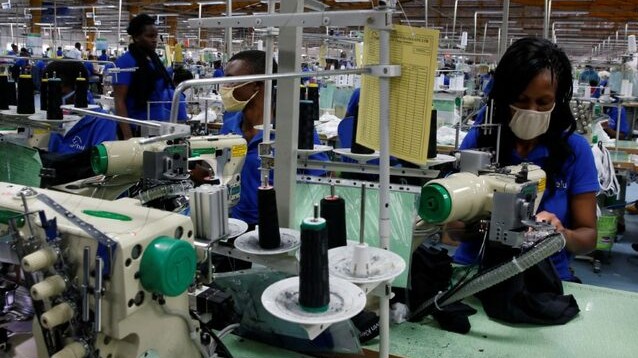Why your child is suddenly clingy and what it really means

Experts explain that ignoring a clingy child or allowing them to "cry it out" without providing comfort can have a lasting impact on their emotional development.
If your toddler has recently turned into a “permanent handbag,” glued to your side and wailing whenever you leave the room, you are not alone. It’s not bad parenting or a sign of “bad manners.”
Child development experts say this clinginess is a normal (and even healthy) part of your child learning a major life lesson: they are a separate person from you.
More To Read
- Kenya records more male births than female for tenth straight year
- Gates, others launch Sh64.6 billion maternal, newborn health fund, bucking aid cuts trend
- Dental problems and cavities during breastfeeding: How moms are affected
- Born too soon: The crisis of premature births in Kenya
- World Medical Association urges Kenya to prioritise safety in maternal health surgical care
- Relief for mothers in Kwale County as upgraded maternal health facility launched
“Between eight months and three years, many children go through phases where they become more clingy or anxious when separated from a parent, especially the primary caregiver,” says Ngunjiri Ndung’u, a registered nurse and midwife at Penda Medical Centre.
“It’s a developmental stage known as separation anxiety, and it coincides with their growing sense of independence.”
Dr. Ndung’u explains that, in the early months, babies don’t realise they are separate from their mothers. They live in a comforting bubble of warmth, food, and care, often with bottle or breastfeeding from their primary caregiver.
But as they grow, they start to understand that they are their own little person, independent and that you, mum or dad, can leave.
“This new awareness brings a mix of curiosity and fear. They want to explore but panic when their safe base, you, are out of sight. So, when your child cries as soon as you walk away, pulls at your clothes, or insists you hold them all day, it’s not regression. It’s progress,” she says.
Clinginess often peaks during major milestones like walking, talking, or starting daycare, where they interact with other children. At this stage, children are developing rapidly, and emotionally, they are seeking reassurance. Saying something like, “You can do it on your own… or… it’s okay to feel that way, come here for a hug,” helps them feel safe and understood.
However, many Kenyan mothers, often out of frustration or lack of support, tend to scold the child or let them “cry it out,” an approach experts warn may do more harm than good.
The mental strain on mothers
For many mothers, the experience of a clingy child can trigger feelings of frustration, helplessness, and even guilt.
“There are days when I just want to scream, especially when I’m tired or overwhelmed,” says Mercy Wambui, a mother of two from Nairobi.
“I feel like I can’t breathe, and it sometimes feels like my child is constantly demanding something from me, leaving me drained emotionally and mentally. Like, can you leave me alone for two minutes of your life!”
These feelings are not unusual, especially in the context of societal expectations on mothers to be perfect caregivers.
“Many mothers are taught to suppress their own needs for the sake of the child, which can lead to feelings of resentment or even anger,” explains Dr. Lorna Mwangi, a mental health expert and counsellor.
“When children are clingy, it’s a reminder that their needs are being prioritised over the mother’s, which can cause stress, burnout, or even the desire to lash out.”
Dr. Mwangi adds that these feelings, though common, can be harmful if not addressed.
“It’s important for mothers to acknowledge their emotions and seek support, whether that’s through self-care, seeking help from a trusted friend, or professional counselling. Without this, the emotional toll of constant caregiving can lead to long-term mental health issues.”
The impact of ignoring emotional needs
Experts explain that ignoring a clingy child or allowing them to "cry it out" without providing comfort can have a lasting impact on their emotional development.
“When a child’s need for closeness is dismissed, they may internalise the belief that their feelings are not valid or that asking for help is wrong,” Dr. Ndung’u adds.
“Over time, this can lead to issues like anxiety, low self-esteem, and trouble forming secure relationships.”
Children do not cling to manipulate; they cling because they are overwhelmed and learning how to feel safe in the world without you right beside them.
“By responding with patience and affection, you’re not spoiling them, you’re building their emotional resilience,” Mwangi adds.
Dr. Ndung’u suggests that keeping routines predictable can help. Something as simple as a familiar goodbye hug or saying, “I’ll be back after your nap,” can provide emotional security. It may be difficult at first, but with repetition, children will begin to understand.
There is a persistent myth in parenting circles that picking up a clingy child or responding to their cries will make them “too dependent.”
But research and experience show that children who receive consistent emotional support in their early years often grow into more confident, independent individuals.
So, the next time your toddler clings to your legs as if they will never let go, take a moment, take a deep breath, and remind yourself: They are not being ‘demanding’, they are navigating a huge step in understanding they are their own person, and that is an important part of their growth.
Top Stories Today














































